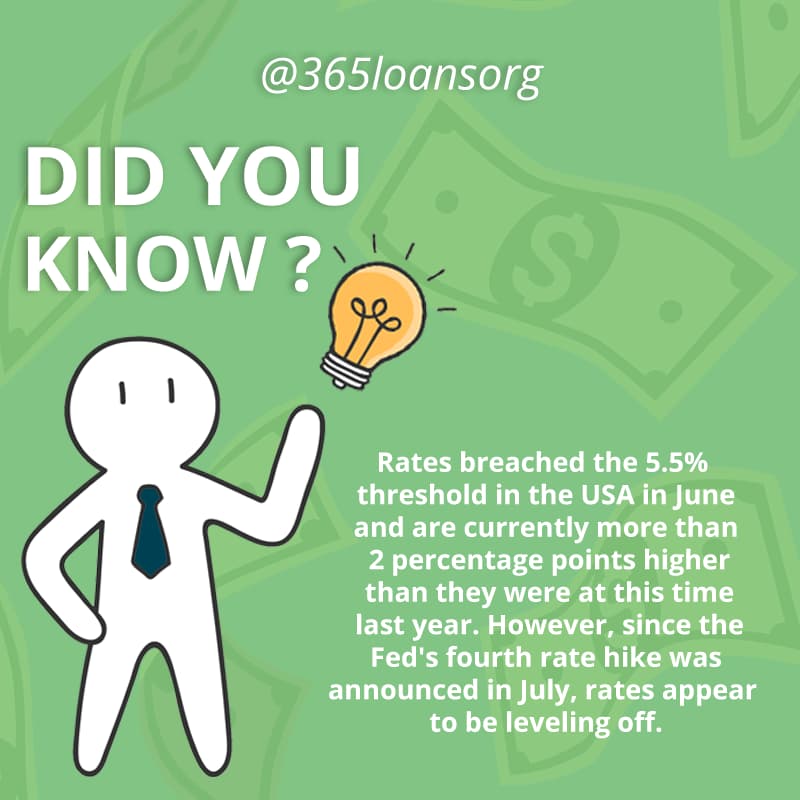There is some evidence suggesting that these record-high rises in home prices may start to level off after two years of an intensely hot and competitive housing market, helping with your decision between renting or buying a house.
Sales of new homes decreased in April of last year for the first time in four months, as did home price hikes. However, many experts point out that despite the persistent housing shortage, home prices will still increase in 2022, albeit more slowly. In addition, potential homebuyers must deal with the relatively high mortgage rates that make monthly mortgage payments high.
Mortgage rates are still more than 2% higher than they were at the start of 2022, despite a minor decline since the Federal Reserve issued its fourth rate increase of the year to continue fighting inflation. Therefore, even though there will be less competition for homes this year due to the decline in demand, homebuyers should anticipate higher mortgage payments.
Here are the most crucial factors to take into account in 2022 when purchasing a home, as well as reasons why waiting or renting might be a better option.
Essential factors to consider if purchasing a property in 2022
Despite the fact that mortgage rates seem to be leveling out, after accounting for all of these factors, a buyer will now pay nearly 47% more for the same property as they would have a year ago.
One of the most significant financial decisions you’ll ever make is purchasing a home. It’s a very individual choice that necessitates assessing your long-term objectives while ensuring that you are financially prepared, from the down payment to the interest on a home loan. What makes sense for you depends on a variety of factors, including your work security, your household demands, and the inventory in the area where you wish to live.
According to the National Association of Realtors, all-cash offers still account for around a quarter of housing bids, and home values are increasing by double digits. Does that imply that you ought to try to wait until prices start to decrease? No, not always.
1. Financial and Personal Objectives
One of the most dependable methods to build wealth is still to purchase a home. Making regular mortgage payments results in the accumulation of equity in your house, which you can then draw upon. Renting is not the same as paying off a mortgage, which is an investment in your financial future.
How long you intend to stay in residence should also be taken into account. If you plan to stay there for ten years or more, you may be able to refinance your mortgage at a reduced interest rate, which will cut your monthly payment. However, it probably won’t make financial sense for you to refinance if you want to move in a few years. Throughout that scenario, you should think about getting an adjustable-rate mortgage, which provides you with a lower initial interest rate that only changes or rises later on in the course of your mortgage term, helping to counteract today’s high mortgage rates.
2. Trends in Prices and Mortgage Rates
High prices and home loan interest rates are two of the key elements at play in the current housing market. Mortgage rates are predicted to stay between 5 and 6% for the rest of 2022 in the USA, despite the fact that they change every day. However, how inflation performs in the future will determine where rates are heading.

The most recent interest rate hike resulted in a little drop in rates, but it is still critical to understand how your mortgage rate will affect both your monthly payments and the overall amount you will pay over the course of the loan.
For instance, if you borrow $600,000 for a property and lock in a 5.2% interest rate for 30 years, your total interest payments will be $586,000. However, if you wait and purchase a $500,000 home at a 6.5% interest rate, your total interest costs will be $638,000. Because of interest over a thirty-year period, even though you paid less for your home, you are still paying more than the price difference.
If increasing mortgage rates have made your earlier housing ambitions unachievable, you may want to consider cutting back on your spending and looking at homes that might be smaller or in less costly locations.
3. Recession Fear and Future Housing Trends
When buying a property becomes increasingly out of reach, buyer competition declines, which could mean that inventory becomes available where you’re shopping. For example, the number of houses that were up for sale in the US nationwide in June increased by 18.7% from the same month last year. The likelihood that you will be able to buy the home you really want this year rather than scurrying in a bidding battle for whatever is available within your budget increases as there are more properties available to pick from.
There is, however, also the concern of an impending recession. Instead of potentially overpaying for a home that would lose value in a future economic collapse, you might be better off if you wait before you buy. Additionally, if the economy weakens, the Federal Reserve would likely raise interest rates gradually, which might be advantageous for prospective homebuyers looking to lock in a lower mortgage rate.
Is renting currently preferable to buying?
It depends, especially when we’re dealing with a period of high inflation that is unpredictable. There are 2 critical decisions that you can really take:
- On the one hand, if you purchase a home and obtain a fixed-rate mortgage, your fixed payment will remain the same each month regardless of how much home prices or interest rates rise. Renting has the disadvantage of a high probability of your landlord raising your rent to offset inflationary pressures. Rents are now sloping upward more quickly than salaries, and if homebuyers are priced out of the market, there will be more pressure on renters, which will increase competition. Many people already face a scorching rental market that causes bidding wars and evictions.
- On the other hand, even while a fixed-rate mortgage can provide you with greater predictability and financial stability, there may be advantages to renting today as the economy deteriorates as long as inflation is rising faster than earnings.

Understanding the costs associated with renting vs. purchasing a property is crucial.
- What will the cost of homeowners insurance be?
- How much do yearly property taxes cost?
- What will the expenditures associated with expected home maintenance be?
Key Takeaways
- First and foremost, remember that expert predictions are not perfect: Even with warnings of things like recessions, no one can predict what will happen with the economy. Additionally, trying to time the market or base judgments on what you anticipate will happen to prices or rates in the future is typically not a wise move.
- When buying a property, consider your financial goals: Buyers frequently become fixated on home values and how purchasing at a particular point in time may be beneficial for appreciation and equity. That’s significant, but ultimately, what matters most is your monthly housing cost.
- In this market, even if you have a plan, be ready to change it: Sometimes it makes more sense to live in a rental you are not super in love with than a home you are not entirely in love with.
- Take personal objectives into account before purchasing a home: In the end, regardless of market conditions, the decision to rent or buy typically boils down to practical factors like whether you need more space to have a family or your lease is about to expire.







